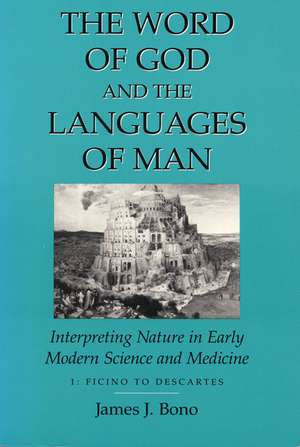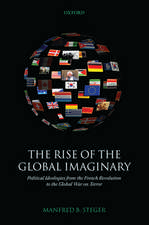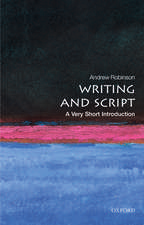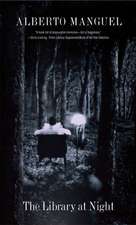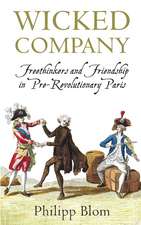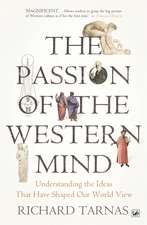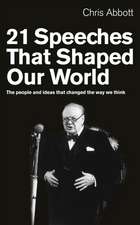Word Of God & The Languages Of Man: Interpreting Nature In Early Modern Science And Medicine Volume I, Ficino To Descartes: Science & Literature
Autor James J. Bonoen Limba Engleză Paperback – 14 sep 1995
This remarkably ambitious work relates changes in scientific and medical thought during the Scientific Revolution (circa 1500–1700) to the emergence of new principles and practices for interpreting language, texts, and nature. An invaluable history of ideas about the nature of language during this period, The Word of God and the Languages of Man also explores the wider cultural origins and impact of these ideas. Its broad and deeply complex picture of a profound sociocultural and intellectual transformation will alter our definition of the scientific revolution.
James J. Bono shows how the new interpretive principles and scientific practices of the sixteenth and seventeenth centuries evolved in response to new views of the relationship between the “Word of God” and the “Languages of Man” fostered by Renaissance Humanism, Neoplatonism, magic, and both the reformed and radical branches of Protestantism. He traces the cultural consequences of these ideas in the thought and work of major and minor actors in the scientific revolution—from Ficino and Paracelsus to Francis Bacon and Descartes. By considering these natural philosophers in light of their own intellectual, religious, philosophical, cultural, linguistic, and especially narrative frameworks, Bono suggests a new way of viewing the sociocultural dynamics of scientific change in the pre–modern period—and ultimately, a new way of understanding the nature and history of scientific thought. The narrative configuration he proposes provides a powerful alternative to the longstanding “revolutionary” metaphor of the history of the scientific revolution.
James J. Bono shows how the new interpretive principles and scientific practices of the sixteenth and seventeenth centuries evolved in response to new views of the relationship between the “Word of God” and the “Languages of Man” fostered by Renaissance Humanism, Neoplatonism, magic, and both the reformed and radical branches of Protestantism. He traces the cultural consequences of these ideas in the thought and work of major and minor actors in the scientific revolution—from Ficino and Paracelsus to Francis Bacon and Descartes. By considering these natural philosophers in light of their own intellectual, religious, philosophical, cultural, linguistic, and especially narrative frameworks, Bono suggests a new way of viewing the sociocultural dynamics of scientific change in the pre–modern period—and ultimately, a new way of understanding the nature and history of scientific thought. The narrative configuration he proposes provides a powerful alternative to the longstanding “revolutionary” metaphor of the history of the scientific revolution.
Preț: 136.94 lei
Nou
Puncte Express: 205
Preț estimativ în valută:
26.21€ • 27.26$ • 21.64£
26.21€ • 27.26$ • 21.64£
Carte disponibilă
Livrare economică 24 martie-07 aprilie
Preluare comenzi: 021 569.72.76
Specificații
ISBN-13: 9780299147945
ISBN-10: 0299147940
Pagini: 324
Dimensiuni: 152 x 229 x 28 mm
Greutate: 0.46 kg
Ediția:New.
Editura: University of Wisconsin Press
Colecția University of Wisconsin Press
Seria Science & Literature
ISBN-10: 0299147940
Pagini: 324
Dimensiuni: 152 x 229 x 28 mm
Greutate: 0.46 kg
Ediția:New.
Editura: University of Wisconsin Press
Colecția University of Wisconsin Press
Seria Science & Literature
Notă biografică
James J. Bono is assistant professor in the Department of History and the School of Medicine at the State University of New York, Buffalo. He is an editor of the journal Configurations and is currently president of the Society for Literature and Science.
Descriere
This remarkably ambitious work relates changes in scientific and medical thought during the Scientific Revolution (circa 1500–1700) to the emergence of new principles and practices for interpreting language, texts, and nature. An invaluable history of ideas about the nature of language during this period, The Word of God and the Languages of Man also explores the wider cultural origins and impact of these ideas. Its broad and deeply complex picture of a profound sociocultural and intellectual transformation will alter our definition of the scientific revolution.
James J. Bono shows how the new interpretive principles and scientific practices of the sixteenth and seventeenth centuries evolved in response to new views of the relationship between the “Word of God” and the “Languages of Man” fostered by Renaissance Humanism, Neoplatonism, magic, and both the reformed and radical branches of Protestantism. He traces the cultural consequences of these ideas in the thought and work of major and minor actors in the scientific revolution—from Ficino and Paracelsus to Francis Bacon and Descartes. By considering these natural philosophers in light of their own intellectual, religious, philosophical, cultural, linguistic, and especially narrative frameworks, Bono suggests a new way of viewing the sociocultural dynamics of scientific change in the pre–modern period—and ultimately, a new way of understanding the nature and history of scientific thought. The narrative configuration he proposes provides a powerful alternative to the longstanding “revolutionary” metaphor of the history of the scientific revolution.
James J. Bono shows how the new interpretive principles and scientific practices of the sixteenth and seventeenth centuries evolved in response to new views of the relationship between the “Word of God” and the “Languages of Man” fostered by Renaissance Humanism, Neoplatonism, magic, and both the reformed and radical branches of Protestantism. He traces the cultural consequences of these ideas in the thought and work of major and minor actors in the scientific revolution—from Ficino and Paracelsus to Francis Bacon and Descartes. By considering these natural philosophers in light of their own intellectual, religious, philosophical, cultural, linguistic, and especially narrative frameworks, Bono suggests a new way of viewing the sociocultural dynamics of scientific change in the pre–modern period—and ultimately, a new way of understanding the nature and history of scientific thought. The narrative configuration he proposes provides a powerful alternative to the longstanding “revolutionary” metaphor of the history of the scientific revolution.
